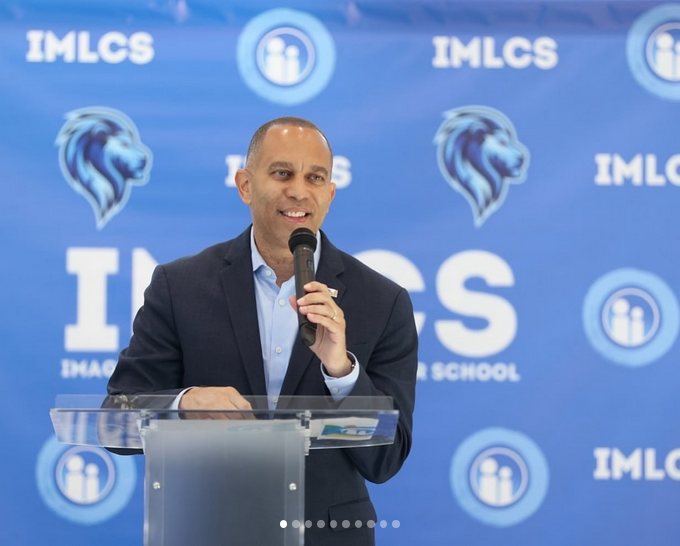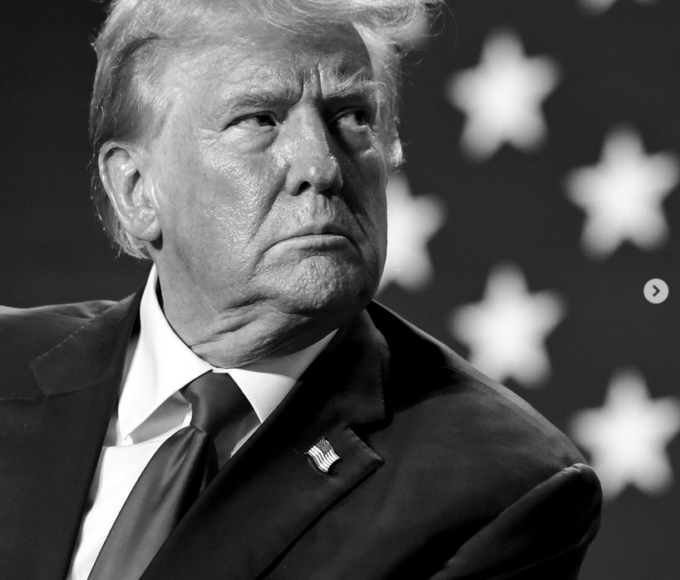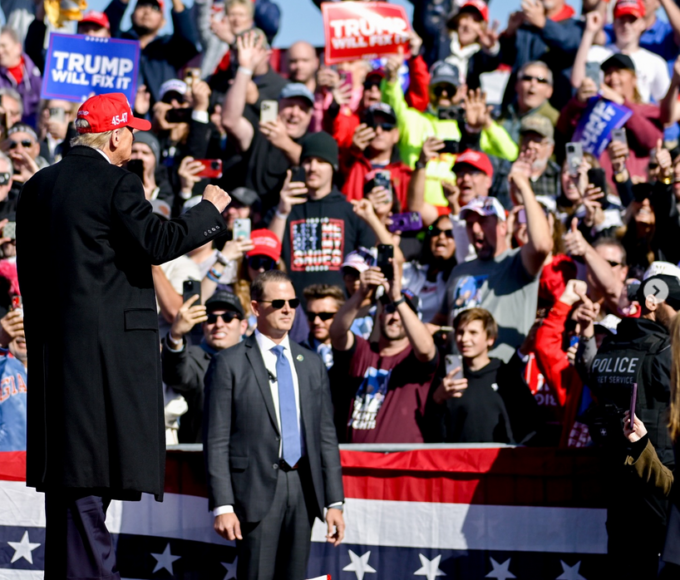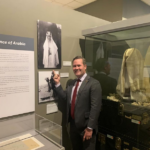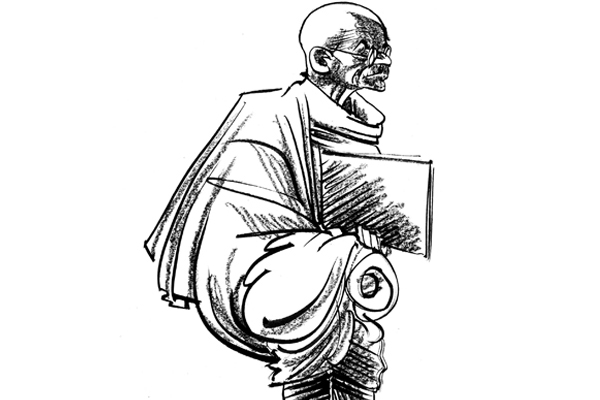Imay be laughed out even before I answer the question. However, I grew up in a family conditioned by Gandhian thoughts, when my father-a small town doctor-actively took part in the freedom struggle and was even imprisoned. I carried some of the Gandhian ideas and values when I served for nearly three decades in the army. I found some of his ideas useful in handling tricky situations that confronts a military leader. Before I recount my experience in applying Gandhian ideas, a bit about the man revered as Mahatma.
Though many consider Gandhi a pacifist, he did not think so. Addressing a gathering at Geneva in 1931 Gandhiji said “I regard myself as a soldier, though a soldier of peace.” Gandhi applied quite a few principles of war in executing his political campaigns. These included selection and maintenance of aim, flexibility, economy of effort and coordination and cooperation.
He planned centrally and decentralised execution. His leadership style was similar to what is taught in military training schools. Gandhi led from the front, the way a military commander should, even in the face of adversity. His leadership, akin to the military leader’s, was built on adherence to goals, clear communication of objectives, flexibility of approach and constantly monitoring progress.
Though his approach was based on doctrines, he was not doctrinaire in execution.He inspired his followers by example rather than by use of force. And his coercive persuasion skills were as effective as a military man’s strategic encirclement.
Many people think military officers run their units with the summary powers available to them under the Army Act. Team play is the core strength of army, which makes it impossible for a commanding officer to run the unit with the help of only the Army Act. He requires situational management skills to run a military unit. Every soldier is taught to fight to survive, has access to the gun and he knows how to use it.This makes it risky if a CO chooses to be ruthless or autocratic, going by the book alone.
Commanding a military intelligence unit is a little trickier, because some of the men consider themselves ‘over smart’, better educated than the average soldier and are exposed to unsavoury elements of society in the course of their work. During my over two-and-a-half decades of service in MI, I discovered some of them can quote army orders and army rules line and verse to serve their ends.
A study of Gandhi’s life reveals how he introspected everyday on his actions and tried to correct himself to overcome his weaknesses. This is one trait I had tried to imbibe; it stood me in good stead in handling situations where I faced moral and ethical dilemmas. There were many such challenges in my experience. But as intelligence work is shrouded in secrecy, I have chosen two ordinary situations in an intelligence unit. These explain how Gandhian intervention in the thought process helped to resolve internal and external leadership dilemmas.
While commanding an intelligence unit in the North-East, we had a quarter master havildar (QMH), a storekeeper in civilian terms. The QMH is a recognition of an NCO’s seniority and performance; I found CQMH Natha Singh (name changed) very poor in his job. I gave him an adverse annual confidential report (ACR) and did not recommend him for promotion. I explained to him why I have done so. Natha Singh took it stoically.
THEN probably, my ego as the commanding officer went on an overdrive; I transferred him to a difficult post on Burma border, which had never produced any worthwhile results. But I was pleasantly shocked when Natha Singh produced excellent results. I felt guilty for giving an adverse report though he was excellent in his primary job as an intelligence gatherer. I wanted to retract my earlier ACR but the Intelligence Corps records said that there was no provision for it.
I took up the case with command headquarters, which came up with the same reply. I wrote to the Adjutant General’s Branch in Army Headquarters, which insisted the rules were inflexible on NCOs ACR. I called the Major, who dealt with the subject at Army Headquarters. When I appealed to him to do something, he said there was a provision for initiating a special confidential report for NCOs serving in operational areas.If I really wanted to help the NCO I could initiate such a report, which carried more weightage. I immediately did so and mentioned in the report how the NCO was wrongly assessed earlier. The whole process took eight months.
After that, for the next seven years, I never came across Natha Singh. While serving in MI directorate in Army Headquarters, Natha Singh walked into my office. He was now a junior commissioned officer and his beard had turned grey. He beamed at me and said “Sabji, I have retired. Before retirement I went to our records to go through my dossier. There I found the copies of your letters, eight of them to ensure that the damage done by the adverse ACR you gave me was neutralised. In fact, I had no clue of storekeeping and I thought you were right in reporting it. But thanks to your persistence and glowing special operational report, I got a foreign posting and I am going home, a little rich, but with a lot of satisfaction. I wanted to thank you on my way home to Jammu.”

I was overjoyed. I shook hands and offered him a cup of tea. “Sabji, can I ask you something? Why did you bother about my career, even I felt I did not deserve any better?” I though it over a while. In the end I realised it was the Gandhian value at work inside me. I replied him, “It was Gandhiji at work inside me.” He looked at me a little puzzled; he probably thought the Sabji was going a little bonkers at fifty.
Even in day-to-day unit management, Gandhi came in handy. Intelligence units are full of NCOs, who are not to be employed in manual labour. But for unit maintenance, we had no option but to use them in odd jobs requiring manual skills. Two NCOs—both of them good soldiers—were marched up before me by the senior JCO for disobeying orders to clean up an abandoned soakage pit in the unit area. After the chargesheet was read, I asked the NCOs what they had to say in defence. They said as per army rules, NCOs should not be employed on manual labour, so they refused to do it. And they were right. I was little puzzled on how to handle the tricky defence. I put myself in Gandhi’s shoes and then asked the two NCOs to go and get three shovels. They brought them, as the JCO looked on with no clue on what was happening.
Iexplained to the NCOs the unit had only two sepoys and so NCOs had to do some of the manual work. As they would not do so as per rule, I said I was going to do the shoveling of the soakage pit, “because somebody had to do it.” They were shocked. “Sir, you should not do it. You are the CO,” they picked up the shovels to do the job.
I stopped them for a moment. “I am glad you have decided not to go by the book. By the same book, I am punishing you for disobeying a senior’s order with three extra duties,” I said. It defuseda potential crisis situation. I got into a bit of trouble for the unorthodox way of handling the episode during my annual inspection. Even that ended happily when I explained to the divisional commander the peculiar problem of manual labour faced by intelligence units.
Gandhi successfully practiced participatory management, driven by ethical and moral considerations without sacrificing goal orientation. That is why he is still remembered.
Col. R Hariharan is a retired Military Intelligence specialist on South Asia. He is associated with the South Asia Analysis Group, the Chennai Centre for China Studies and the International Law and Strategic Analysis Institute, Chennai. E-mail: haridirect@gmail.com Blog: http://col.hariharan.info
















